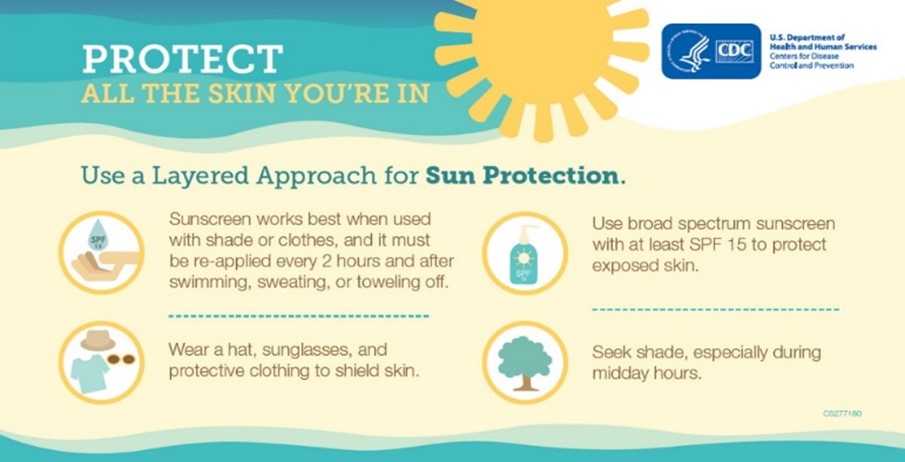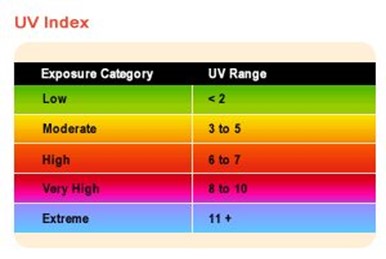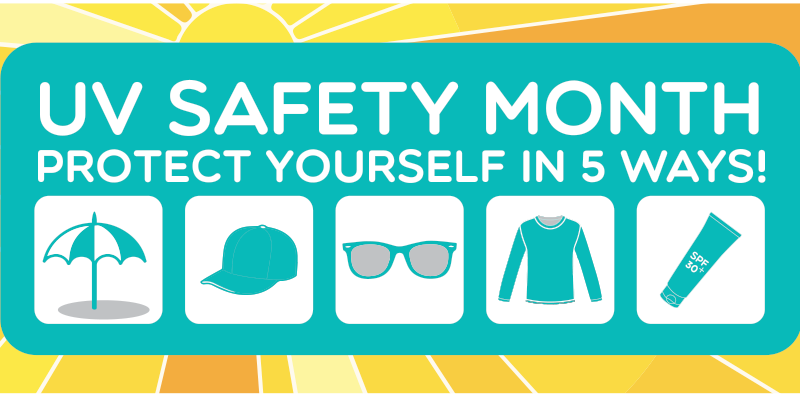July Is UV Safety Month
Even though July has been designated UV Safety Month by the Centers for Disease Control and Prevention (CDC), sun safety is always in season! The sun is a natural source of ultraviolet (UV) radiation; while it can be beneficial, the sun can also cause health risks. NYCHA’s Environmental Health and Safety Department would like to provide you with the following information from the CDC on how you can protect yourself and your family from UV radiation.
UV Benefits
- UV rays facilitate the production of vitamin D, a vitamin essential to human health. Vitamin D helps the body absorb calcium and phosphorus from food and assists bone development. It’s recommended that people get 5 to 15 minutes of sun exposure 2 to 3 times a week.
UV Risks
- Sunburn is a sign of short-term overexposure, while premature aging and skin cancer are side effects of prolonged UV exposure.
- UV exposure increases the risk of potentially blinding eye diseases if eye protection (such as sunglasses) is not used.
- Overexposure to UV radiation can lead to serious health issues, including cancer. Skin cancer is the most common cancer in the United States.

How to Protect Yourself from UV Radiation
- Stay in the shade, especially during midday hours.
- Wear clothes that cover your arms and legs.
- Consider options to protect your children.
- Wear a wide-brimmed hat to shade your face, head, ears, and neck.
- Wear wraparound sunglasses that block both ultraviolet A (UVA) and ultraviolet B (UVB) rays.
- Use sunscreen with sun protection factor (SPF) 15 or higher, for both UVA and UVB protection.
- Avoid indoor tanning. Indoor tanning is particularly dangerous for younger users; people who begin indoor tanning during adolescence or early adulthood have a higher risk of developing melanoma.
- The UV Index provides important information to help you plan your outdoor activities in ways that prevent sun overexposure. The National Weather Service and the EPA issue a daily UV Index forecast.

If you have questions about this or any environmental health and safety matter, please email ehs@nycha.nyc.gov. Residents, employees, and any member of the public can visit the following website to submit environmental health and safety concerns: https://on.nyc.gov/submit-concern.
For additional information on UV safety, please visit:

